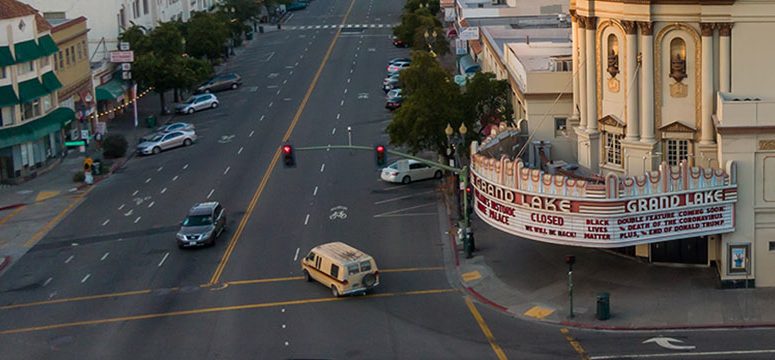Celebrate the teachers — endanger everyone else.
Denver City Councilman Albus Brooks wanted to cheer on public school teachers as they returned to work on Thursday, but chose to celebrate in a way that risked the lives of his neighbors: he videotaped himself as he was driving.
The District Nine councilman was happy that the city’s three-day teacher’s strike ended. It was a political win, and his adorable daughter sat next to him in the car with a Valentine to give to her teacher. But the video was shocking to some.
“Oh my God, he did it with his kid in the car!” said Jennifer Smith of the advocacy group StopDistractions.org, after watching the video that was deletedbut archived here. “That’s endangering her life. That is just a horrible example for a parent — or a leader — to be putting out there.”
Distracted driving killed 3,450 people across the country in 2016, making the problem a public health epidemic. The Colorado State Patrol says that drivers using phones caused 57,298 crashes in the Centennial State between 2012 and 2015, roughly 40 per day.
This morning the problem also came up in the statehouse when a distracted driving bill, which would outlaw Brooks and others from making selfie videos while driving, cleared the Colorado Senate Transportation Committee with unanimous support.
But local street safety advocates were cautious about singling out Brooks for behavior that nearly driver does — especially considering that the councilman is an ally to their issues. Brooks added that he considered safety before making the video.
“There was no one in the street, and it was a very safe residential neighborhood,” says Brooks. “We probably shouldn’t have done it, but it was very safe.”

But distracted driving is never safe, says Smith, referring to a driver in Fort Collins who killed 9-year-old Erica Forney in 2008.
“That was in her neighborhood, riding her bike just two houses away from hers when a driver who was getting off a cell phone call ran her over and killed her,” says Smith.
In 2015, Mayor Hancock pledged to end all traffic fatalities by 2030 when the city joined the Vision Zero movement — which Brooks supported. It’s a bold commitment, but achieving it will take a widespread cultural change. Unfortunately, the councilman is just like others who are a part of the problematic culture, says Skyler McKinley, a spokesman for AAA Colorado.
“I don’t think that I can responsibly stand here and lecture anybody for having these slip-ups, even though they’re really dangerous,” he said. “We all fall into these patterns of really dangerous behavior when it comes to using our phones.”
In Denver, there is little planned to help drivers learn how to stop distracted driving. The city’s Vision Zero Action Plan calls for educating drivers about safe behaviors, but it has no specific action items related to distracted driving.
For now, drivers should follow Smith’s advice:
“I know we love our phones. I know we have to be connected. But there is a time and place for that. And behind the wheel is not one of them.”






